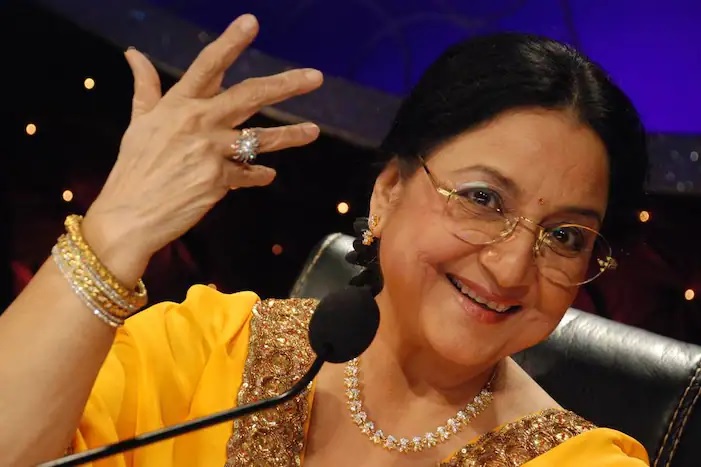Tabassum Govil passed away on November 18 after suffering back-to-back heart attacks.
Farooq Shah
In the 1951 Nitin Bose-directed Deedar, seven-year-old Baby Tabassum, who would later go on to become India’s most prominent talk show presenter of the 70s and the 80s, lip-synced Lata Mangeshkar to perfection on Naushad’s timeless composition bachpan ke din bhula na dena.
Tabassum Govil aka Baby Tabassum or Tabassum Naz, breathed her last on November 18 after she suffered back-to-back heart attacks.
In April last year, several media portals and social media sites had shared news of her death after she tested positive for COVID-19 while she was shooting for her Youtube show Tabassum Talkies.
Incidentally it was the day of Friday when she herself had cleared the air on the death rumours and tweeted about the same. She finally died on a Friday.
“Aapki shubhkamnaon ki wajah se main bilkul theek hoon, tandurust hoon aur apne parivaar ke saath hoon. Ye jo rumour phail rahi hai mere baare mein woh bilkul ghalat hai, aur main yeh dua karti hoon ke aap sab bhi apne ghar mein safe rahein,” the actress had tweeted last years after the rumours of her death.
Tabassum was born of an interfaith marriage. Her father, Ayodhyanath Sachdev, was a freedom fighter and mother Asghari Begum, who besides being a freedom fighter was a journalist and an author.
She was given the name Tabassum by her father who respected his wife’s faith and Kiran Bala by her mother keeping her father’s religious sentiments in mind, and thus she came to be known as Tabasum Kiran Bala before her marriage.
Tabassum was married to Vijay Govil, elder brother of television actor, Arun Govil, who played Lord Ram in the Ramanand Sagar epic Ramayana for Doordarshan.
She made her film debut as a child actor in 1947 with Nargis, followed that year by Mera Suhaag and Manjhdhar, and then Bari Behen in 1949. Swarg, a 1990 release, was her last movie.
Tabassum started her television career as the host of Phool Khile Hain Gulshan Gulshan—India’s first talk show, which ran on Doordarshan from 1972 to 1993featuring interviews with actors, TV artistes and other film personalities.
As the popularity of Phool Khile Hain Gulshan Gulshan soared to a point where celebrities would queue up outside the Doordarshan office to get a chance to appear on it, her show became a benchmark for television anchoring.
“When the show first started, some artists would act snobby about appearing on it, but as it gained popularity, the biggest names would line up at the Doordarshan office for a slot. As with social media now, it quickly became a rage then,” Tabassum once spoke about the show.
Throughout the 21-year period, film stars graced the show and chatted with Tabassum about their personal and professional lives.
Abhi Toh Main Jawaan Hoon, a TV show on TV Asia USA and Canada themed on the Golden Era of Hindi Cinema, was the subject of her ongoing work as a television interviewer. She had just floated her own YouTube channel, Tabassum Talkies, that featured poetry, comedy, interviews with celebrities, and life sketches of the legends of the yesteryear.
“Adab, Namaskar…main hoon aapki apni Tabassum, aur aap dekh rahain hain Tabassum Talkies…,” the veteran host would greet the viewers on her Youtube Channel.
Deeply pained by the fall in the calibre of filmmaking, song writing, and music production, and to make her talk shows qualitatively more enlightening, Tabassum would pose challenging questions to her subjects eliciting responses that would make her viewers long for the erstwhile glory of the Indian cinema.
The simplicity of her set, her deep familiarity with the celebrity being interviewed, and the richness of the language that she spoke with were what distinguished her programs from today’s pretentious talk shows.
Apart from her TV and film commitments, Tabassum was also inspired to write several joke books and edit Grihalaxmi, a Hindi women’s magazine, by the rich literary atmosphere that she enjoyed at home.
In her demise, the Indian entertainment industry has severed a connection between the past and present that could never be knotted again.
Farooq Shah is a senior journalist based in Kashmir.


